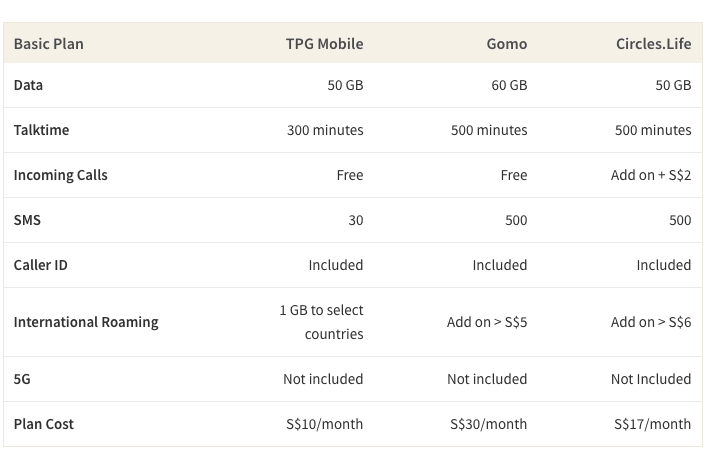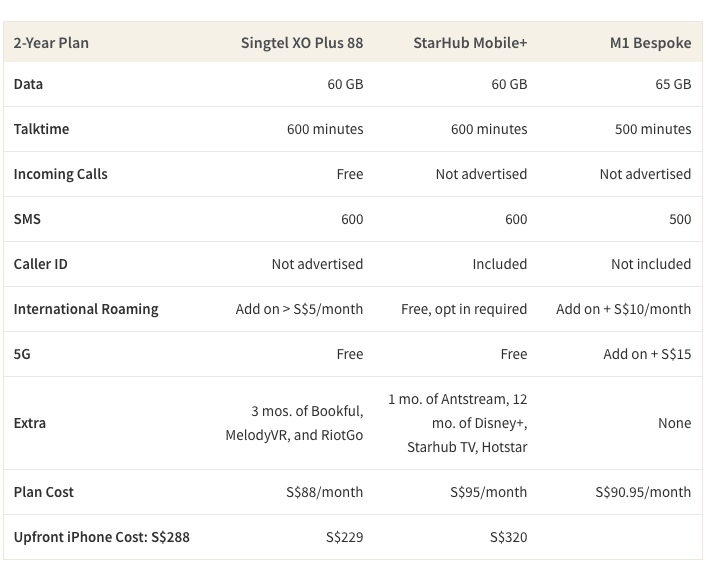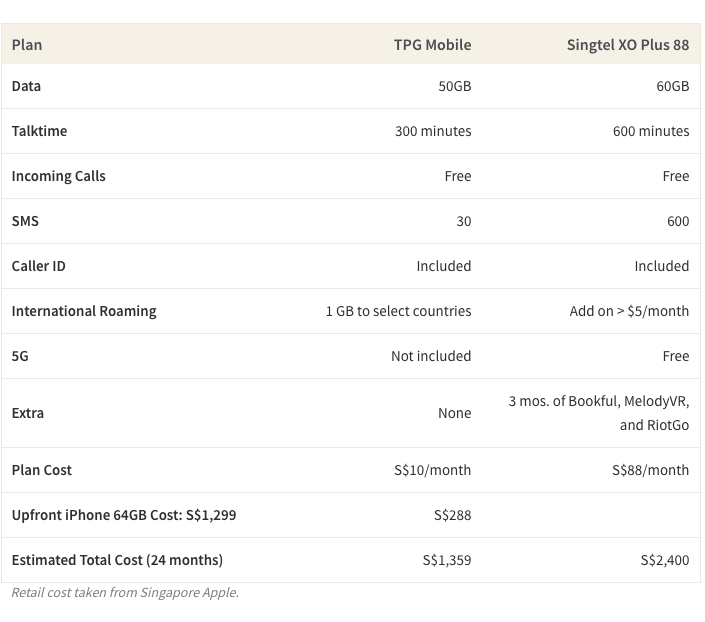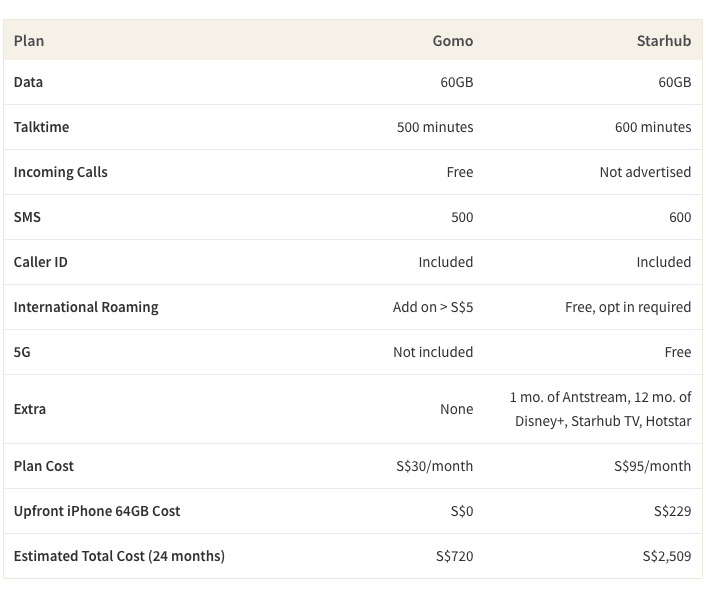SIM-Only or Fixed Contract Plans: Which Mobile Plan Will Save You Money?
Over the last 13 years, the steady increase of Singaporean mobile data usage pushed telcos to create more powerful and cost-effective mobile plans for their customers. With the rise of SIM-only plans, many people have opted out of their fixed contracts in order to take advantage of plans advertised as cheaper with a greater quantity of data.
In recent years, popular telcos designed flexible, subsidised phone plans in an attempt to maintain their market share. Some of these newly-launched fixed contract plans have placed a hold on the assumption that SIM-only plans are the best option for saving money. Read ahead to learn the differences between SIM-only and fixed contract mobile plans, as well as find out which one will save you the most money down the road.
SIM-Only Plan Features
SIM-only mobile plans have grown quickly in popularity due to their cheap upfront costs and customisable plans. Instead of locking yourself into a contract or being expected to buy an expensive smartphone alongside your mobile plan, SIM-only plans allow you to pay for just the SIM card and a month's worth of data. And with the lack of one to two-year fixed contracts, pricey cancellation fees don't apply to SIM-only customers.

However, SIM-only plans don't work for everyone. If you're seeking to buy a new phone or upgrade to the latest model, you'll have to pay the full retail price, as opposed to saving money on a subsidised contract plan. Additionally, SIM-only plans may not quench your data thirst; international roaming add-ons and data top-ups can significantly increase your total cost of spending if not planned out ahead of time.
Fixed Contract Plan Features
As traditional as fixed-contract plans are, many telcos have redesigned their mobile plans to better fit into the future of data usage. Just like it's told in the name, fixed-contract plans have lock-in periods up to 2 years. Additionally, most of these plans offer subsidised headsets, so that customers can lease or buy a phone alongside their mobile plan. These phones can be paid up-front or over a selected period of time.
While fixed-contract plans are more expensive than SIM-only, they offer more bundles and promotions which can be especially useful to customers. For instance, both Singtel and Starhub include streaming service subscriptions in their mobile package. Similarly, many telcos offer discounted plans that target multiple people, like your family or company.

The downside to fixed-contract plans is that you can face termination fees as high as S$1000 if you choose to cancel your contract for any reason. Additionally, you may find yourself paying too much for services and add ons. For example, if your selling point was 12 months of Disney+, you may find that buying a SIM-only plan and individual Disney+ account is much cheaper than a fixed-contract plan.
Which Mobile Plan Will Save You Money?
With the pros and cons of each option in mind, the next step is to compare prices between SIM-only and fixed contract plans. Below, we've presented two scenarios: one of which require a new phone and one where it doesn't.
If You Require a New Phone
If you're looking to upgrade your headset, then you probably think that the cheapest option is to purchase a fixed-contract plan that comes with a discounted phone. However, you'd be surprised at the actual outcome.
We found that SIM-only plans that require you to buy a retail phone can actually be cheaper than the full fixed contract package. Take a look below to see how TPG Mobile's 50GB plan compares to Singtel XO Plus 88 if your eyes were set on the iPhone 12 (64GB).

At face value, Singtel's fixed contract plan is almost twice as expensive as TPG Mobile's SIM-only plan. However, Singtel offers twice as much talktime, 20 times more local SMS, and also gives access to faster 5G internet.
It's also important to note that many telcos' phone leasing structures allow customers to trade their fixed-contract phones for the latest model. That means you can enjoy your iPhone 12 for two years and then switch it out for the next model at your contract renewal. Additionally, many telcos provide mobile insurance so that if you break your fixed-contract phone, you can easily replace it without paying huge repair or replacement fees.
If You Do Not Require A New Phone
If you already have a phone and are just in need of a mobile SIM, the SIM-only plan may seem like the best option. To test this, we've compared another set of SIM-only versus fixed contract plans below.

Again, the SIM-only plan has favourable prices compared to the fixed-contract plan. However, in the case that you wish to sell your newly purchased phone for profit, the numbers significantly balance out. iPhone 12 resale prices can go as high as S$1,139, which means your total could amount to as low as S$1,370. With 5G speed and a menu of included streaming services, this option may be justifiably more desirable to some customers.
Conclusion
If your goal is to save money, then SIM-only plans are the best option for you. However, with the increased demand for faster internet and benefits like streaming subscriptions, fixed-contract plans are still useful in their own ways.
As a final note, the Singapore Government is seeking to empower their low-income seniors to become more digitally savvy. Through the Seniors Go Digital initiative, Singaporeans 60 years old and above can secure a subsidised smartphone and mobile plan. If this applies to you, then you should consider a fixed-contract plan, as they are now designed to be more affordable for seniors.

